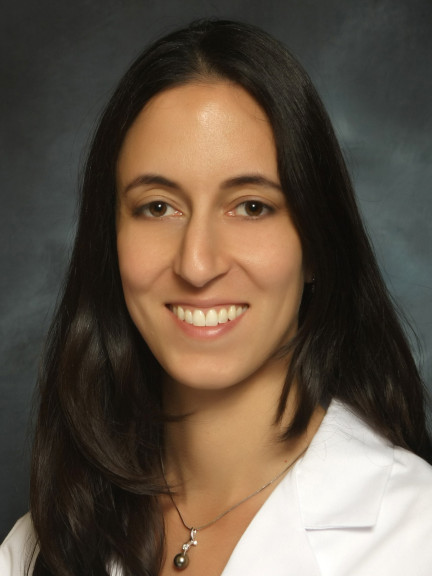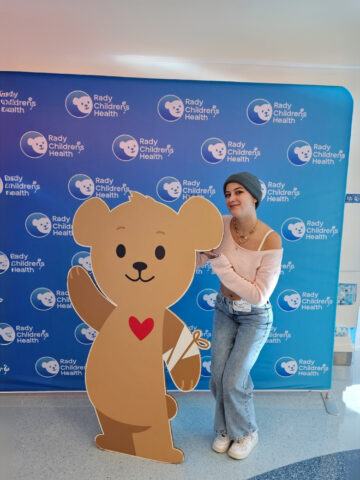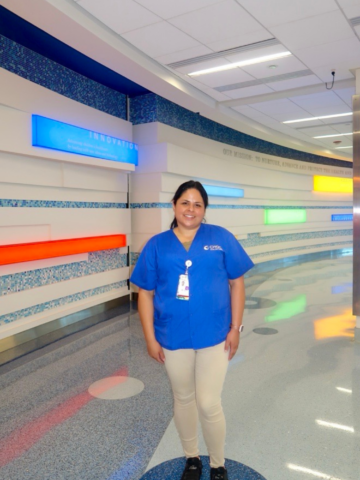Many children can be born with or develop one or more birth marks that can vary in size, color and shape, but do not usually pose any health risk. However, a certain number of darker spots (café au lait macules) or freckles on skin not exposed to the sun can often be the first indication of a genetic condition called neurofibromatosis type 1 (NF1).
What is NF1?
NF1 is the most common neurological disorder caused by a change (or mutation) in a single gene, occurring in one in every 3,000 children. The majority of these children do very well, have happy and healthy lives and may not have major skin issues, developmental disabilities or other neurological issues, says Dr. Neda Zadeh a medical geneticist at CHOC and associate director of the Molecular Diagnostic Laboratory at Genetics Center.

“Most of the time, NF1 can occur for the first time in a child due to a random genetic change at the time of conception, and is not inherited from a parent,” explains Dr. Zadeh. “It is important for parents to realize that this condition is not the result of anything an expectant mother did or did not do during her pregnancy. In about one-third of patients, we often will see that one of the parents also has NF1 and may not even realize it.”
Criteria for an NF1 diagnosis
In order to meet criteria for an NF1 diagnosis, patients must meet two of the following criteria established by the National Institutes of Health (NIH), summarized below:
- Six or more café-au-lait macules of a specific measured diameter
- Two or more neurofibromas or one plexiform neurofibroma
- Freckling in the axillary or inguinal regions
- Optic glioma
- Two or more Lisch nodules on dilated eye exam
- A distinctive bony lesion
- A first-degree relative (parent, sibling, or offspring) with a known diagnosis of NF1.
The NIH criteria are extremely accurate in adults and children over the age of 5 years. If children are younger than age 5 at the first evaluation, he or she may not yet have met the above criteria, but may do so after they reach school age. For this reason, visiting a geneticist on a regular basis is important in order to monitor and care for the patient. Also, in certain cases in which a diagnosis is not completely clear, or there is a concern for a different diagnosis, genetic testing is available and usually coordinated after genetic counseling occurs.
When you should call a doctor
If you are concerned that your child may have NF1, or there is a family history of this genetic condition, speak with your pediatrician, who will perform an evaluation and may refer you to a geneticist for further examination and information.
“Parents should be aware that 10 percent of adults may have one or two café au lait macules, which are simply birthmarks and no underlying genetic issue,” says Zadeh.
Neurofibromatosis type 2 (NF2) sounds very similar to NF1 in name, but is a completely separate disorder, and is even rarer than NF1, occurring in one in every 25,000 people worldwide. NF1 and NF2 are completely different conditions, caused by genes on different chromosomes, so having a child with NF1 does not mean they are predisposed to NF2, and vice versa.
Children with NF1 may require care from multiple specialists including neurosurgery, neurology, oncology and orthopaedics, but should be seen at least annually by a geneticist.
“Children with NF1 should be under the care of a geneticist, who can help coordinate care and management of NF1 patients,” says Zadeh. “We also can provide information regarding the possibility to have further children in the family with NF1 and referrals to complete genetic counseling.”
CHOC’s neurofibromatosis program
CHOC’s Neurofibromatosis Program has been treating children with NF1 for more than 30 years and annually treats at least 150 children with NF1. The clinic was recently recognized by the Children’s Tumor Foundation as a Neurofibromatosis Affiliate Clinic, recognizing the program for having all the necessary specialists needed in order to provide comprehensive care to even the most complicated and rare issues that can be seen in association with NF1. This special program is nationally recognized and CHOC specialists are currently involved in cutting-edge clinical trials that are not available at many pediatric centers.





